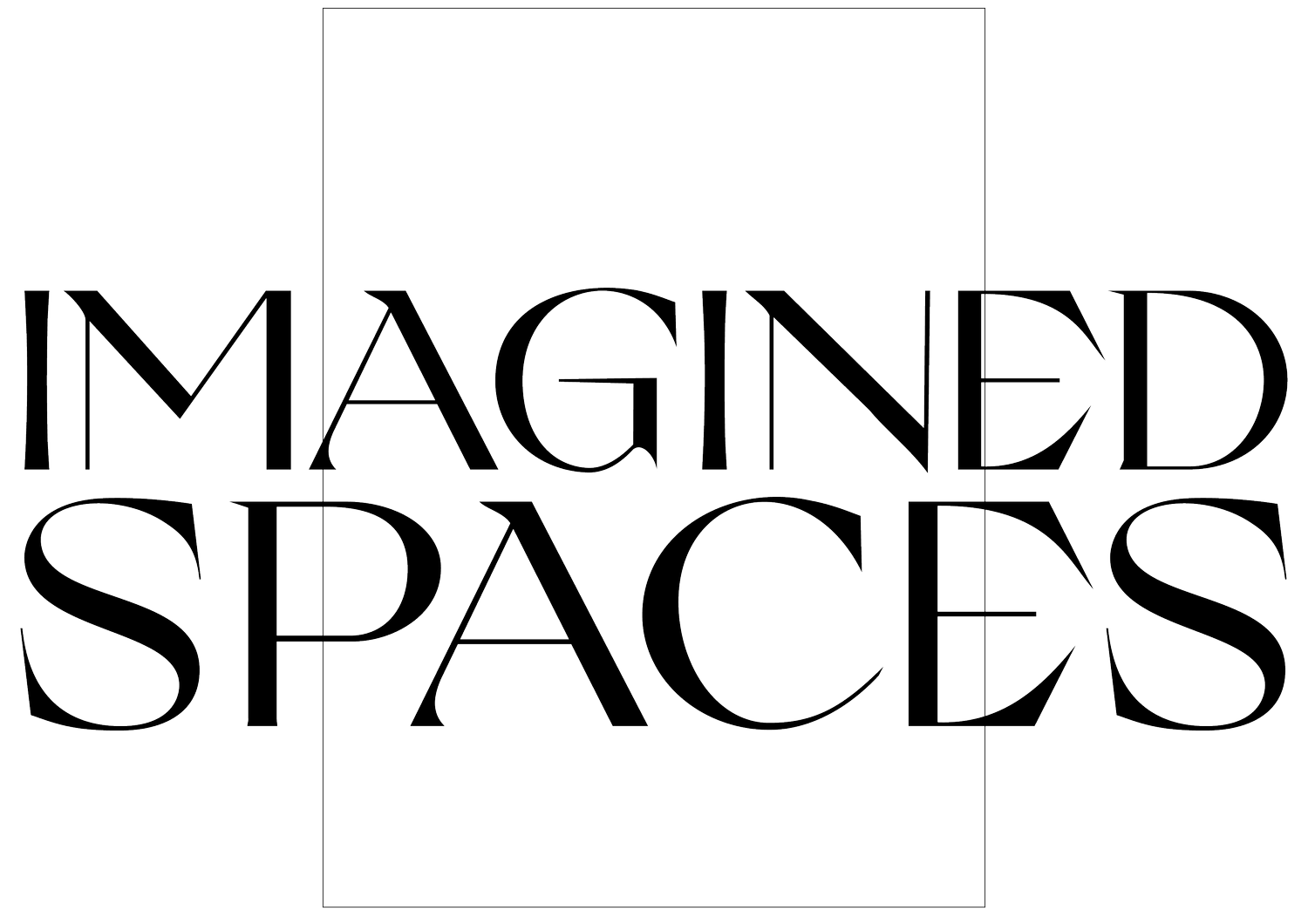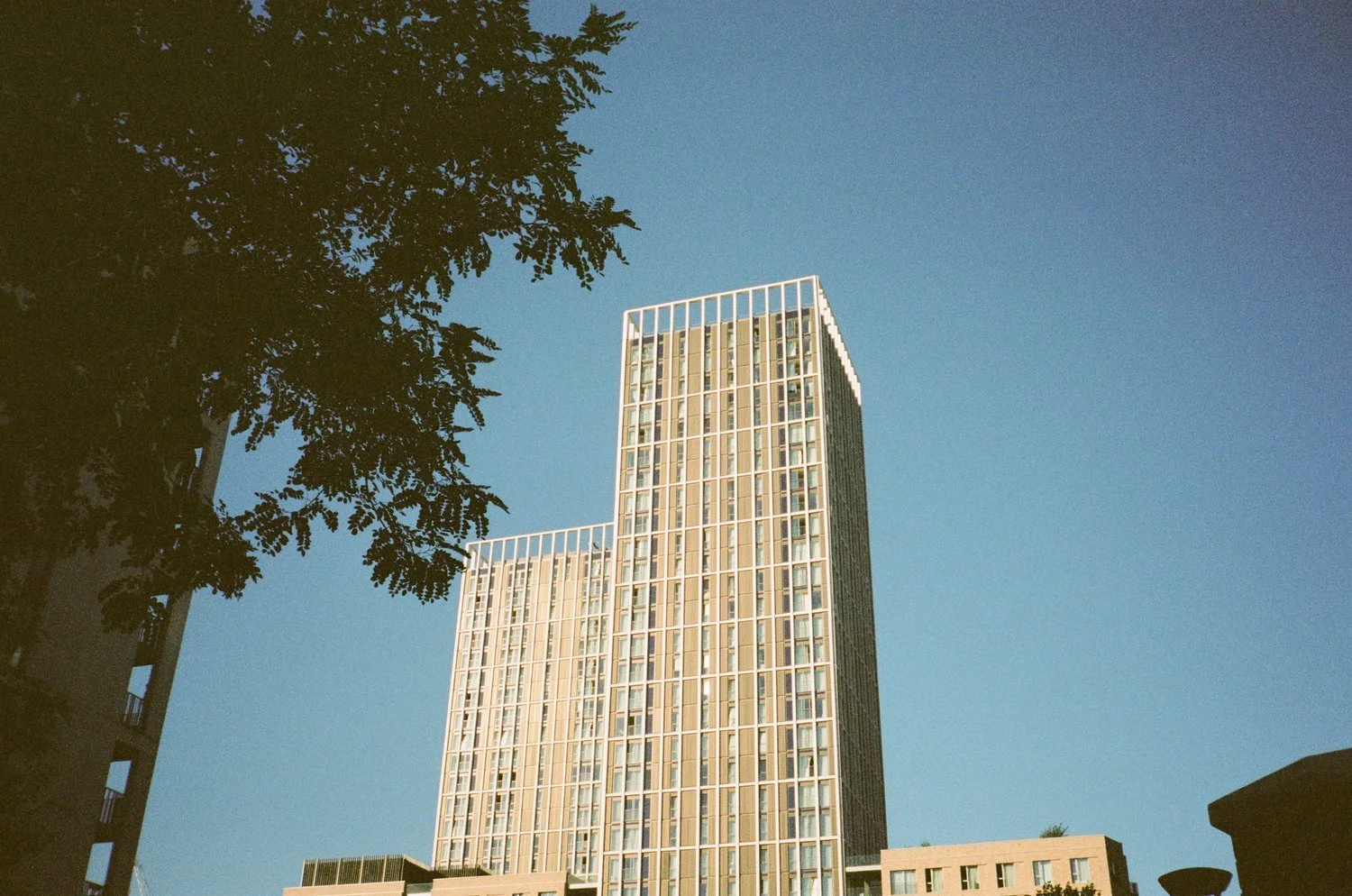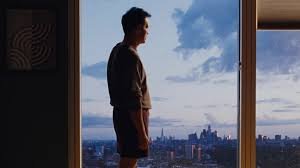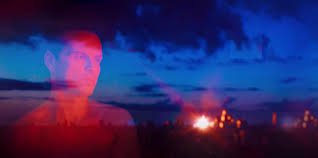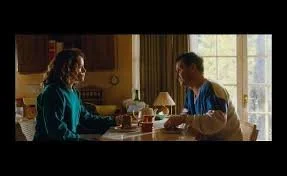All of Us Strangers: A conversation...
All of Us Strangers
Andrew Haigh (dir); UK, 2023
All of Us Strangers started its screen run at the local cinema, DCA (Dundee Contemporary Arts), 26 January. I had been waiting for this film to appear at the local cinema for some time now. Two of my screen crushes had major roles (Andrew ‘Hot Priest’ Scott, and Paul ‘After Sun’ Mescal) but I was curious about how a film about grief, familial relationships, intimacy, and desire handles those issues through its central conceit taken from Tachi Yamada’s novel, Strangers. I went with my friend, Ruth Morrison. Emerging from the dark into the busy foyer of the DCA, buzzing with late afternoon activity—folk milling about chatting or eating, glasses clinking—and also a little emotionally wrung out from the screening, I felt just a little estranged from the ordinary life around me. Ruth said it had been a such a long time since she had been ‘pole-axed’ by such a film, and I think this is absolutely true. The following conversation, stitched together and edited from a post-screening discussion over drinks, followed by a series of text exchanges, represents our way of coming to terms with a film that has lingered in our minds for a long time after that Friday screening.
Gail Low
Gail: I was attracted to All of Us Strangers because I was curious about its central conceit: an adult returning to his dead parents and encountering them again as real people around the age of their passing. That’s such a powerful idea because in some families, whether your parents are still alive or not, you may never be able relate to your parents as adults… you may be psychologically tethered to the emotional time of childhood when your father and/or mother represented those authoritative, larger-than-life figures that they were when you were growing up. This was certainly the case with my father, who has since died.
Making Adam (Andrew Scott) physically an adult, and his parents the age they were when they died is a masterstroke. And exploring that adult-as-a-child figure is so sensitively handled in All of Us Strangers. Having the adult Adam return to his childhood home in order to try to come to terms with all his unresolved issues from childhood provides an astonishingly rich terrain to mine. For that turbulent childhood is suggested: an only child always on the outside of an adult dyad as it were, estranged and not always being able to tell his parents what exactly was in his head; the child who could not let on that he is gay and more… And through all of this, Adam also has a sense of what his parents might be thinking and feeling for he has, of course, grown up.
There’s wry humour in having the adult Adam in his childhood pyjamas, in the management of physical heights when Adam hugs his father (Scott must have been kneeling to represent the young Adam before the camera zooms in on a boy’s chubby fingers), or in the ritual crowning of the Christmas tree with a fairy or angel. Adam’s exchanges with his mother (Claire Foy) about his sexuality—her puzzlement and anxiety—are beautifully handled… funny, awkward, and full of pathos. For you always want to be loved in exactly the manner and way you want to be loved. Yet life falls short mostly.
I love how time is managed in the film, cutting between the past and the present as it does, so that the present seems open and porous. Past time is folded into the present as it were. Time here is not linear in that the people that you have a connection with stay with you even though they can’t logically do so.
Ruth: The performances by Scott and Paul Mescal as Harry (Scott’s lover), are so intense that you feel that, as a viewer, you are almost intruding as a voyeur in watching them. I became so immersed in Adam’s loneliness and despair that I really wanted to believe that he was meeting his dead parents. Also, to have like suffered a loss like that and at such an early age must be traumatising I suppose… I mean people say, ‘you learn to live with it’ but I wonder… If you feel something strongly enough then perhaps it is as good as being there.
Gail: Yes, the places and people you love return as revenants and traces that haunt you. All of Us Strangers is so good on the pull of desire. And that blend of the dream and the real is compelling. There’s a Welsh word, ‘Hiraeth’, which suggests a visceral yearning for something lost, usually understood in the context and idea of home, and in Welsh, national belonging. ‘Hiraeth’ might work well to describe the longing made almost physical here. There are many tight close ups of Adam’s face filling the screen… and oh the expressive stillness of his face!
Ruth: It’s as if you are seeing exactly what is going on in his mind on his face… it almost feels like you've been looking through a peephole watching somebody's emotions just come exploding…
Gail: But the film title (and perhaps even its premise), All of us Strangers, is also so true. The film opens with the image of the high-rise tower block (or if it doesn’t, that image is near its start). All those individual glass windows set out in a grid-like fashion. The lingering blue-filter shots of Adam by the window looking out against the fading of the light, or gazing out at night, or Adam next to his computer screen. His image is reflected on the shiny interiors of lifts—it’s almost as if Andrew Haigh (or his cinematographer) is asking us to consider who this Adam is.
Adam moving about alone in his apartment before he meets Harry (Mescal) is a study in isolation. We know from their exchanges that few folk live in the high rise; we never see any other person other than the two of them, and Harry observes that they are the only two individuals on their floor. Those camera shots of the long badly-lit corridor with all the doors of the apartment shut… those shut doors are literal manifestations of their isolation and Adam’s solipsism (worn as a kind of defence) permeates the first quarter of the film.
Ruth: Yes I agree; it’s such a gorgeously made film.
Gail: I’m speculating, of course, but that’s the pleasure of cinema! Windows are both barriers and openings to the outside world. Adam on the green outside looks up at Harry in the window of his apartment after the fire-alarm goes off, which leads to Harry appearing at Adam’s door because he noticed Adam’s gaze… recognised his yearning for a connection perhaps. What is also delicious is that when Harry first introduces himself to Adam, he stays at the doorway of Adam’s apartment with his arms draped over the door frame, and says those awkward botched lines of seduction before the door is firmly shut as Adam, freaked out perhaps, declines Harry’s invitation to an encounter.
I love also the tension between looking, which logically starts from a position of separation, and touch. For looking is predicated on distance (however small); you have to be a subject looking at an object (or another subject). Touch is predicated on proximity; you have to be up close to touch someone. And the way Harry caresses Adam is so affecting; it’s not simply about sexual arousal (though it’s that of course) but Harry’s touch is also about tenderness. Intimacy is represented physically in the film, and interestingly, this physical and sexual intimacy occurs before those revealing post-coital conversations between Harry and Adam about their childhood, but after the revelatory heartfelt regrets between Adam’s parents and himself as they all come to terms with what could have been done better. There, touching and hugging suggest a closeness where there might not have been one before.
Ruth: But I also think just the way Adam and Harry look at one another… these are two guys that don’t need much; they don’t need to work at it. There was just something there right from the start. That's the thing that makes that relationship absolutely extraordinary, as if it's the most natural thing in the world, which I suppose is the case.
Gail: And structurally, the stillness, the physicality of the intimacy, the reflections, the film’s mise en scène seem to suggest another level beyond words—another expressive dimension beyond merely telling viewers explicitly through verbal exchanges (or back stories) about what is going on. It’s like searching for a language beyond words to say the thing you need to say.
Ruth: Andrew Scott in some scenes doesn't say anything at all, and that's kind of lovely. Facially he’s so suggestive that it only takes one twitch of one eye or some small something, the way he moves his lips to one side, for example, to signal the emotion within. So much that can be said without actually having to say anything at all.
Gail: An expressive dimension beyond words…
Ruth: The music choice for this film is also incredibly powerful. The songs remind me of a turbulent time in my own life too. And that is what music does; it’s a connector, taking you to a certain time, place and or people.
Gail: Yup, music includes language but also exceeds it!
Ruth: I think Andrew Haigh said, ‘The film is about the power of music, weirdly, to drag us into the past.’ Perhaps this is why it works so brilliantly in the film. Adam is completely immersed in his past, and each memory with his parents is accompanied by music. The original soundtrack in the film contrasts beautifully with the other songs, space, and other worldly instrumentation, echoing an emptiness. The use of ‘The Power of Love’ by Frankie Goes to Hollywood is inspired. The lyrics perfect.
Gail: But I want to ask of this intense, giddy, all-encompassing romance between the two men… is Harry (still) a stranger? We know so much about Adam but so very little about Harry. Mescal’s character is so sparingly drawn in comparison to Scott’s Adam…. They fall for each other but what exactly does Adam fall for? We have to surmise that his alcohol and drug abuse, and his estrangement from his family suggest a troubled figure, and their past estrangement from families and friends was partly what pulled them together. Yet I wonder if making Harry a fully rounded character would be a mistake because it would rob Harry of mystery, of enchantment even.
Ruth: The film grounds itself in small everyday things and scenarios. It's funny how quickly it seems to be perfectly normal for you to go and visit your dead parents in a house. That scene where Adam is in pyjamas is really funny! That was the only point when I thought the crew must have absolutely pissed themselves laughing during filming. All the tiny attention to detail—the visual signs of the late 70s or early 80s in the way they are dressed (for example, Adam’s mother in a velour tracksuit). And also how normal it is to say ‘hi darling’ to your grown son returning home? Almost like my son coming back for the weekend. To say, ‘oh it's lovely to see you but we haven't seen you since you were 12 because we were both killed in a car crash, but hey, it's lovely to see you.’
Gail: Yes, I love the domestic scenes. Snippets of the lovers cooking, watching crap television and talking, in addition to those shared tea and biscuits moments between mother and son. It makes the ordinary extraordinary in the context of this hopeful (but maybe improbable) romance. That blending of the real and the unreal, the real and the dream. Where one kind of love is also open to (or overlaid onto) another kind of love perhaps. I wondered about those slightly awkward and unsettling moments of the film when Adam sees a man in the woods and follows him, and only later do we find out that it is his father… or when the adult Adam in pyjamas hops into bed between mother and father because he can’t sleep. These didn’t jar but I wondered what those scenes were doing… Maybe they signal a sense that you, much like Adam, are discovering how to act… that you don’t know.
Ruth: I liked it when Adam was back in his room, flicking through his notebooks and looking at all his stuff in his room. One of the things I hate about going back to stay at my Dad's is that there's stuff that you've had when you were young there, although it's very different from how it was laid out when I lived at home. My room became Dad's office but the space—the bricks and mortar, and arrangement of the whole thing—still reminds me of when I grew up there.
Gail: Is it appropriate that part of the closing sequences takes place not in the childhood home but in a restaurant? That scene is so very moving but also funny. The waitress turns up with the family dinner for three; she had warned Adam earlier that he would not be able to consume as there would be too much food.
It’s funny looking back over what we’ve said and written, I realise that we haven’t said anything about the queer dimensions of the film, and those brief reminders of the AIDs epidemic and the social stigma attached to being gay in the 80s which, of course, Adam’s mother remarks on. I wonder also if this is because the romance and the encounter with one’s dead parents seem to exist in a bubble protected from the ravages of the outside world. The social outside is not neglected (it’s certainly mentioned by the parents temporally still in the 80s) but it’s not centre stage, and doesn’t intrude much on the intimacy and intensity of the kinship bonds and the romance. I’m sure too that there are other signs I’m missing when I read the relationship between these two men as universal. I hope what I am saying isn’t a version of wilful blindness.
Finally, the ending is also ambivalent. We’ve talked about how to read it, whether it signals a kind of ability to move on in life, or the reverse. We have different views on this. But we won’t talk about it here explicitly because viewers will have their own opinions and rightly so. All of Us Strangers is such a compelling, rewarding film to watch and to mull over—philosophically and emotionally profound—so much so that some of the other films I’ve watched of late at the DCA do seem like eye candy. There’s nothing wrong with eye candy of course, but this one is special.
Ruth: I think that All of Us Strangers is one of those films where you go in and you're going to be absolutely hit over the head by it, completely smacked—pole-axed—or it might not move you. I don't think there can be a halfway house. I think it's one of these love-or-hate films. But I hope I get to return and fall into it again.
